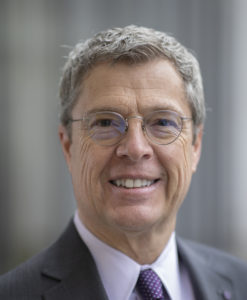Can Human Dignity Help Heal Us In Our Coronavirus Moment?

Brett G. Scharffs is Director of the International Center for Law and Religion Studies and Rex E. Lee Chair and Professor of Law at Brigham Young University Law School. This post arises from his particpation in an international Webinar held 16 April 2020 [1] and is part of a Talk About Conversation on COVID-19 and Human Dignity.
There are no magic wands in figuring out how to respond to the global medical and economic pandemic that is coronavirus. We are learning as we are going. There is much to be said. There is more to be done.
But I believe there is something useful in looking to our existing resources—especially when we are in the midst of a crisis (as opposed to before and after a crisis, when we have more time and capacity for institutional design and re-design). For example, I find myself returning to the words of the Apostle Paul in Corinthians 13, where he speaks so movingly about charity, or pure love, as embodied by Jesus Christ. He speaks of long suffering, envying not, humility, being not easily provoked, endurance, seeking truth, and above all, faith, hope and charity, with the greatest of these being Godlike love or what the King James Bible translates as charity. (more…)
